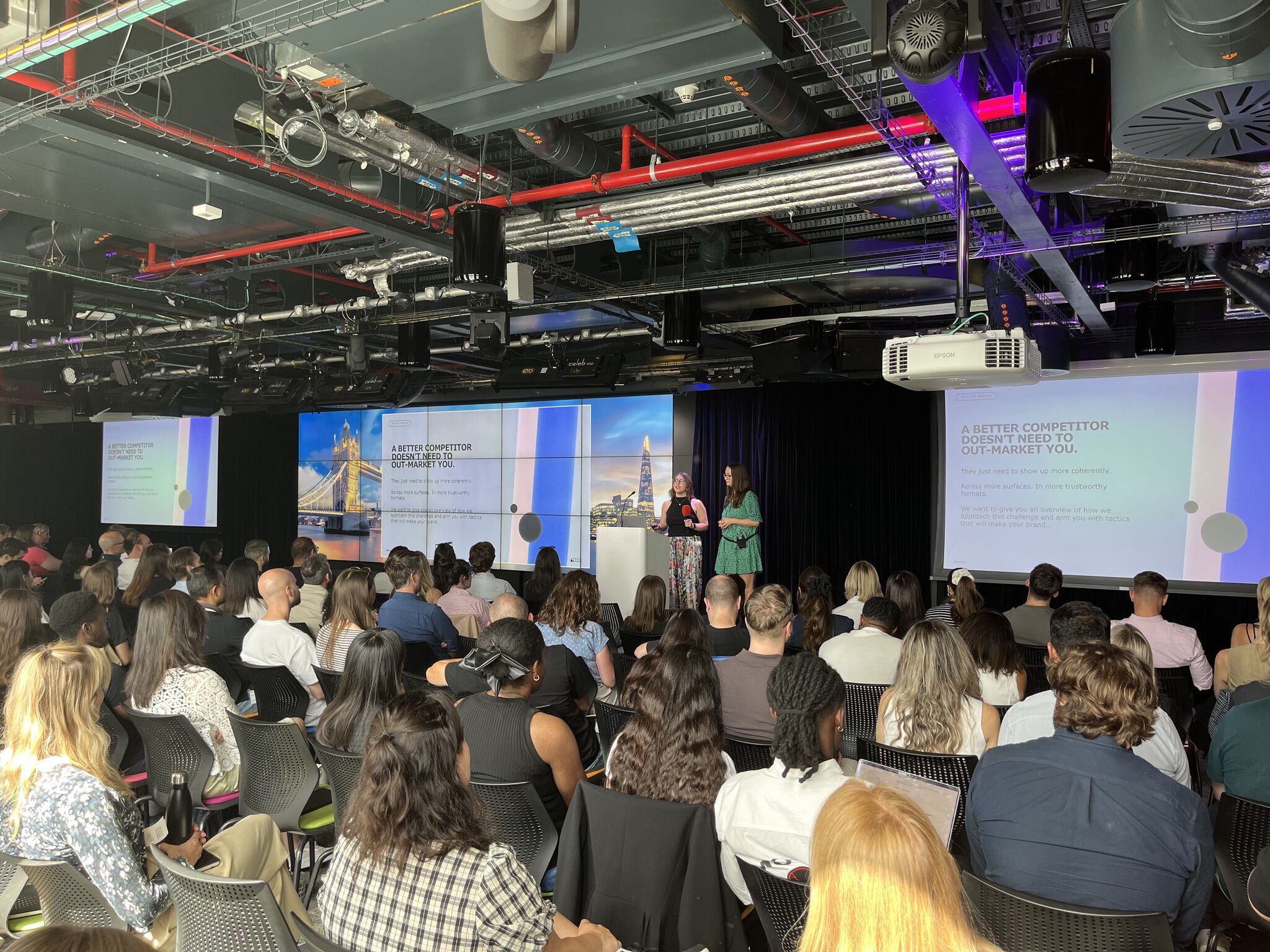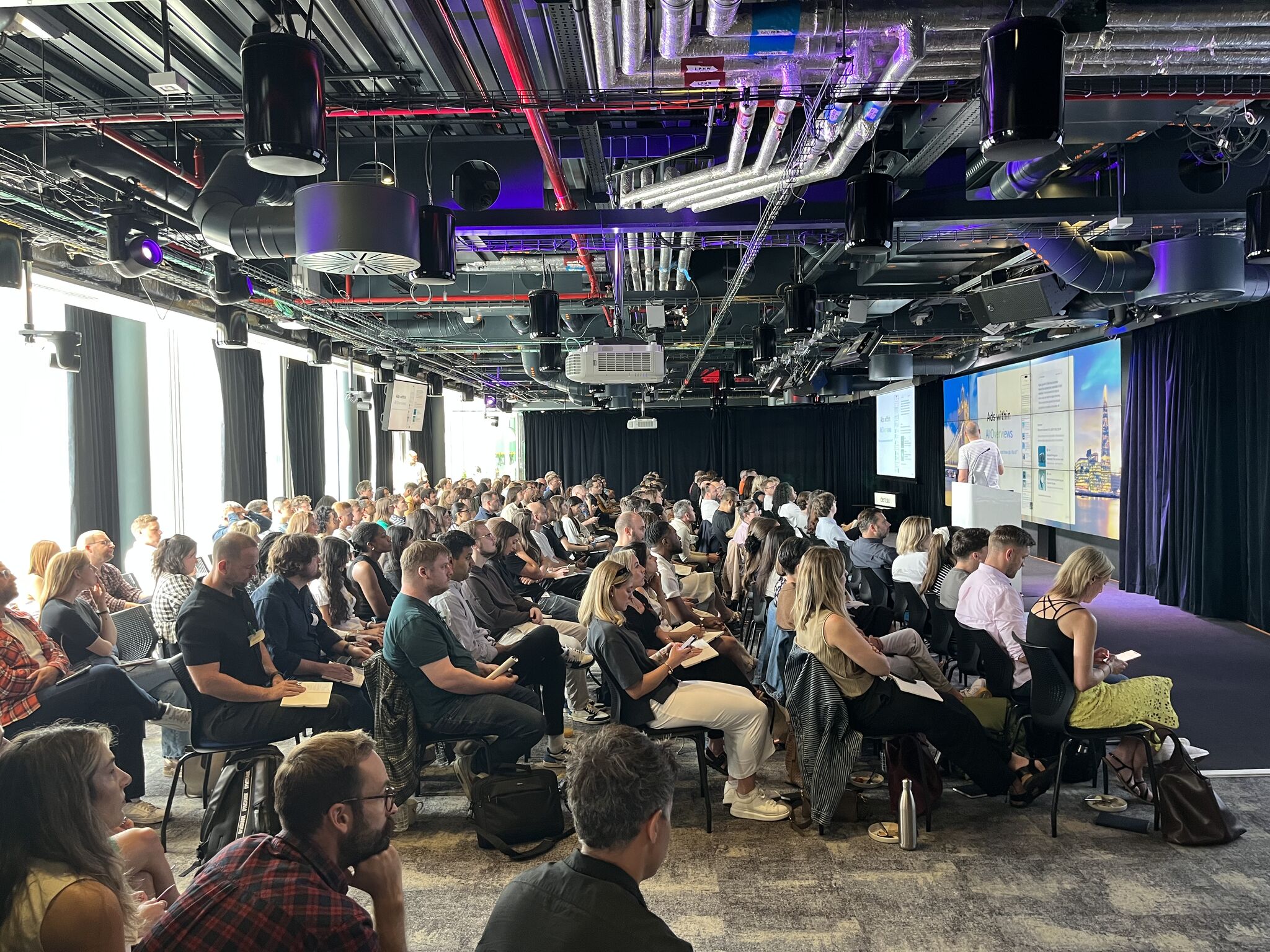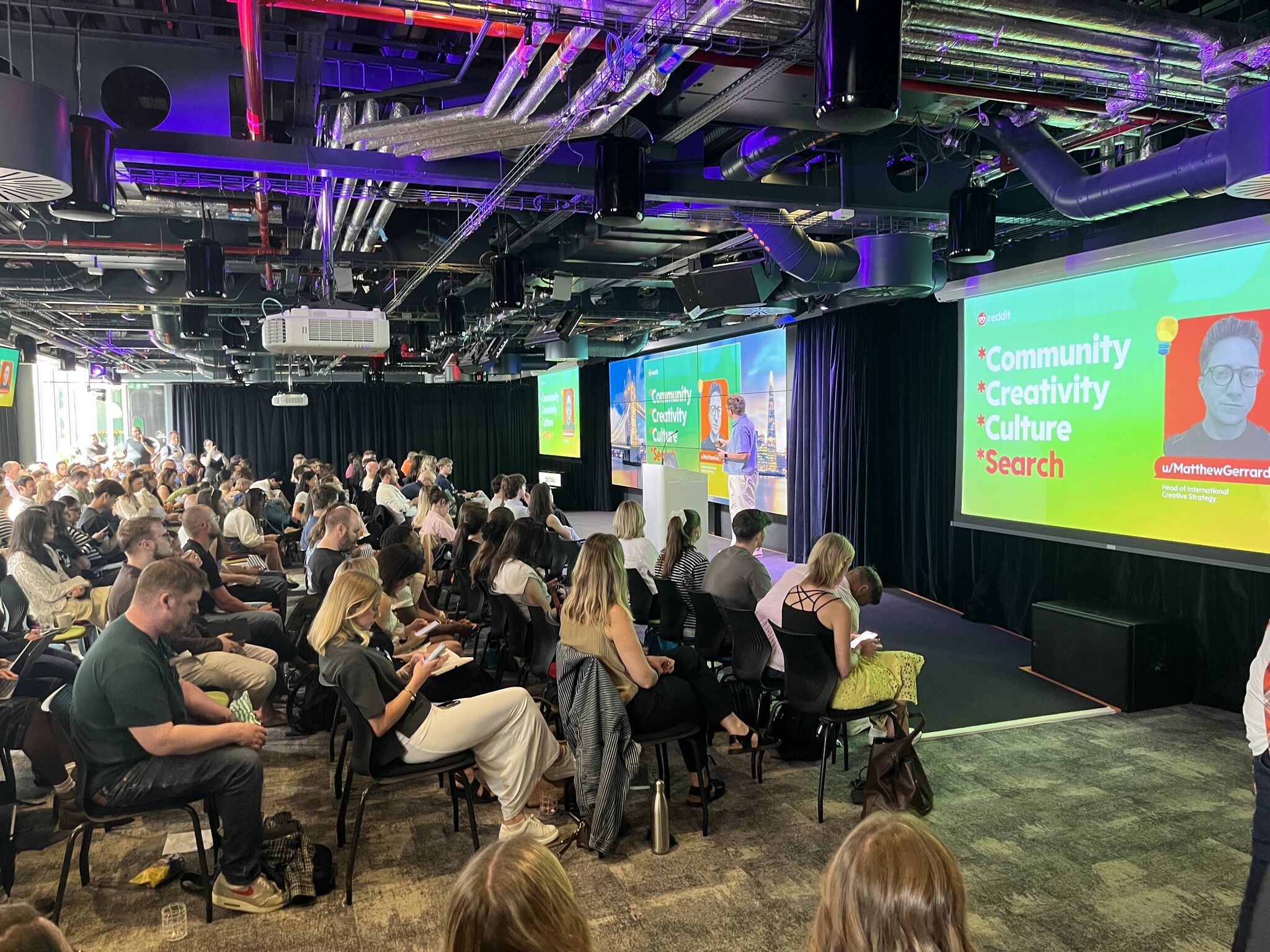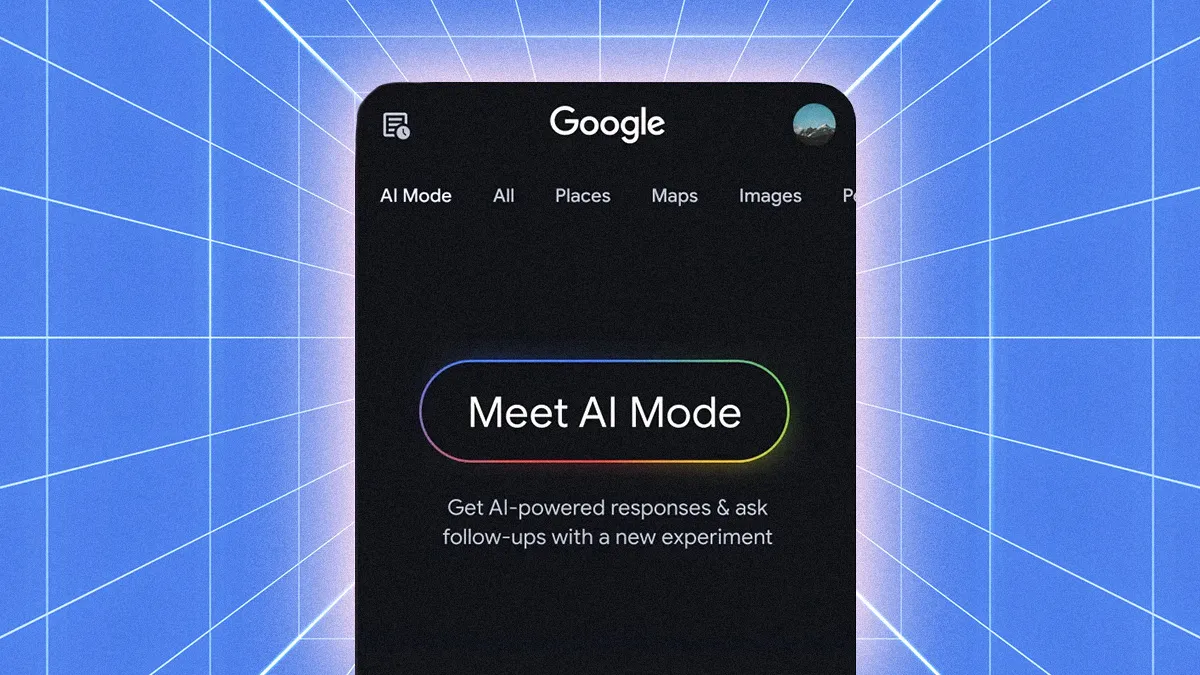In July, we brought together 170 clients for our second annual Total Search Summit – an event hosted at Google’s St Giles office and packed with the latest insights shaping the future of search.

With speakers from our digital teams and partners Google and Reddit, the summit was designed to allow attendees to be able to identify what they needed to pay attention to in a rapidly changing search environment. We wanted to highlight key takeaways for clients to allow them to cut through the noise of today’s fast-moving digital landscape.
From emerging trends in AI to changing consumer behaviour, each of the ten talks and our closing panel discussion explored how brands can stay competitive in today’s search market. Distilled into five key themes, the plan was to share our insights in bitesize chunks with headlines and a takeaway to digest, discuss and put into action. The themes included:
1. The evolution and fragmentation of search.
The first theme covered how the role of search has fundamentally changed, and how traditional SEO and paid search tactics need to be adjusted.
· Decentralised discovery is rising, with platforms like TikTok, Reddit, YouTube and Pinterest becoming increasingly more integral to customer journeys.
· Now more than ever, we are seeing a rise in zero-click searches across search platforms, which is reducing direct traffic.
· Today, search journeys are almost always multi-platform and multi-modal, involving images, voice and conversational prompts.
The takeaway?
Solid SEO fundamentals remain crucial, but it’s now essential to ensure that your brand is discoverable across multiple platforms like TikTok, Reddit, YouTube and Pinterest. Tailor your content formats (video, UGC, reviews….) to each platform’s search behaviour and user expectations.
2. The rise of AI and LLMs in search
Large Language Models (LLMs) like ChatGPT, Gemini and Perplexity are fundamentally reshaping content discovery. But what does this mean for brands?
· Consistently showing up and utilising multiple platforms and products to display your brand and increase brand voice is more important than ever.
· AI Overviews and semantic search are reducing SEO clicks.
· Retrieval-Augmented Generation (RAG) allows LLMs to use fresh, external data.
· AI search tools adapt based on user history, preferences, and context.
The takeaway?
Brands need to optimise their content for AI-generated search experiences. Structuring your content in concise, semantically rich formats (bullet points, FAQs & summaries) will increase visibility in AI Overviews and LLM-powered search tools like Gemini and ChatGPT.

3. Organisational adaptation and integration
Disjointed teams across SEO, PPC, PR, and Content can lead to lost performance. To succeed in AI-driven search, brands must unify strategies across channels. Landing Page Experience (LPE) is key to boosting conversions and lowering CPCs - and AI tools like ConversionMax can scale optimisation and improve efficiency.
The takeaway?
Break down unnecessary silos between your digital channels. Unify your brand strategy around shared signals (e.g. landing pages, feeds & structured data) and align your creative assets for multi-modal search. Use tools like ConversionMax to optimise landing pages for both performance and relevance.
4. Measurement and visibility challenges
Remember that traditional metrics such as keyword rankings and backlinks are no longer the be all and end all to LLM visibility. New metrics like chunk retrieval frequency, vector index presence and AI citation count are beginning to emerge. Structured data and signal consistency across platforms is critical for brand visibility, as well as your brands relationship with publishers, and the creation of user-generated content and consistent messaging.
The key takeaway?
Expand your analytics to include AI traffic sources. Track referral traffic from AI tools and implement new visibility metrics, as well as completing an audit for your structured data and signal consistency.

5. Content and creative strategy in an AI era
To stand out in AI-generated results, your brand’s content must be optimised for meaning. Scenario-based narratives, semantic-rich language, and well-structured formats tend to perform best. Elements like bullet points, reviews, and the first 160 characters of your content are particularly likely to be surfaced. Reverse-engineering prompts and imagery to align with how large language models (LLMs) interpret content will further boost your chances of being selected.
The key takeaways?
Create intent-driven, scenario-based content. Use AI to identify gaps and reverse-engineer prompts. Focus on answering specific user needs with clear, relevant, and emotionally resonant content that aligns with how LLMs understand language.
The future of search no longer rests on keywords and clicks – it’s about understanding the complex and evolving ways that consumers discover, interact with and expect information. Whether it’s adapting to AI-powered search experiences, unifying your digital strategies or rethinking content through the lens of intent, one thing is clear. Brands that adapt to these changing consumer behaviour shifts will win.
The Total Search Summit wasn’t just about what’s changing. It’s about what brands can do next.
If you’d like to discuss anything related to the event or the topics covered, please don’t hesitate to reach out.

